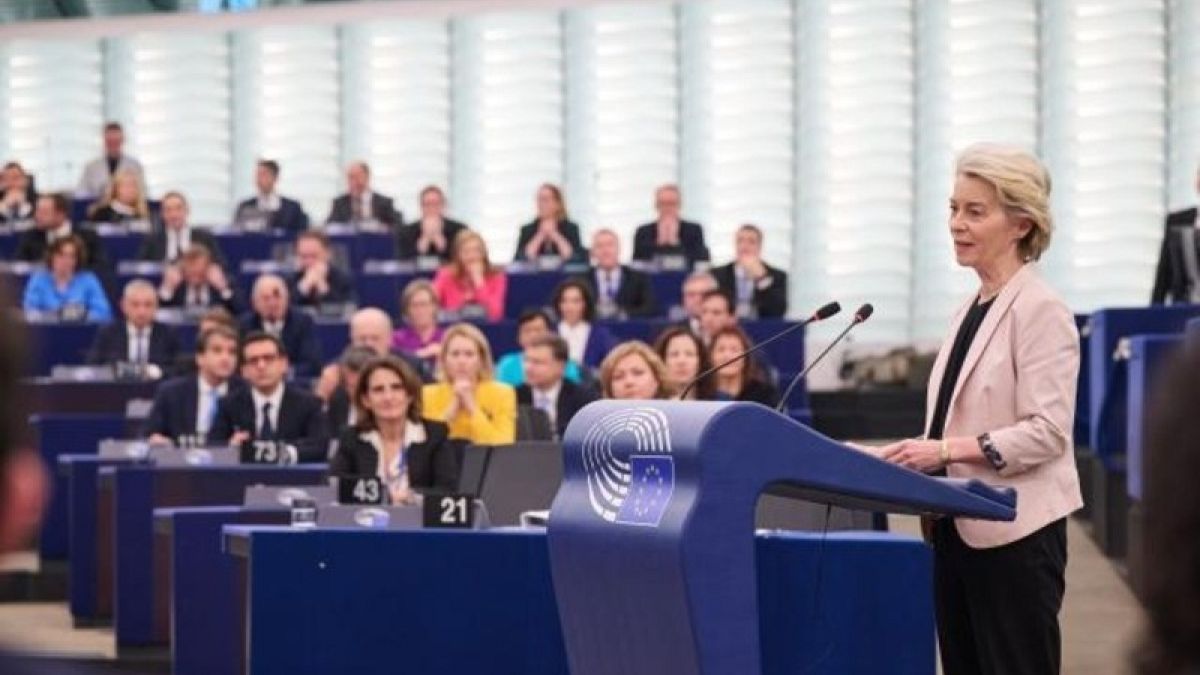Do organic farmers still have a chance in Europe?

For more than a year now, European agricultural policy has been in a state of unrest.
With media-savvy manure-heap initiatives, motorway blockades and tractor rallies in capital cities, in particular the large farmers’ associations with their predominantly conventional-farming members, are attempting to haul the European Commission’s “Green Deal” to the slaughtering block. But what about the climate-conscious farmers who had hoped that the “Green Deal” would benefit them, their land and the environment? An investigation by our reporter Hans von der Brelie in Auersthal, a small village in the far-eastern reaches of the Republic of Austria.
Herbert Zetner gets up at four a.m. every day. It’s still pitch dark outside. But like many organic farmers, Zetner must juggle two jobs. He works as an IT expert at a bank in Vienna until the early afternoon. Then he changes over from his office chair to the driver seat of his tractor. In the Marchfeld, a large alluvial plain near the Austrian capital, on this November day he is sowing gold-of-pleasure, also known as camelina or false flax.
The Marchfeld region is considered the “granary of Austria” but driving through the pretty villages with their imperial yellow house facades, you notice that many of the fields are quite narrow and they are laid out next to each other like different coloured hand towels. This is strip cropping. With this method organic farmers are striving to heal the wounds that former monocultures with their huge fields have inflicted on the landscape.
Conventional agriculture wreaked havoc on the Marchfeld: Over-fertilisation, overexploitation of groundwater reserves and a dearth of hedgerows have led to a massive loss of species and soil erosion, extending to desertification. The plain overheated, it dried out – and in order to continue supplying Vienna with vegetables, many farmers promptly resorted to spraying toxic substances and artificial fertilisers.
However, a change in thinking is now manifest, even in the Zetner family. “I used to spray myself with poison, I was constantly ill,” says Herbert. When his father passed away, Herbert and his brother took over the farm and transitioned to organic farming. Instead of fungicides and chemical fertilisers, Zetner uses a home-made hay tea made from fermented grasses.
Organic farming often means more work, says Zetner: “Previously, with conventional farming, we needed close to 500 hours for our 74 hectares of fields and forest. Now, with regenerative agriculture, we need 1500 hours. This means we have three times the effort!”. Nevertheless, Herbert seems happy with himself and the world. “Organic used to be considered exotic, but people now realise that organic is normal,” he sums up.
Herbert grows 24 different crops. Gold-of-pleasure (camelina), oats, spelt, barley, rye, chickpeas, caraway seeds, Turkish melissa (lemon balm) … the list is long! The part-time farmer practises regenerative agriculture and has been officially certified as an organic farmer for five years.
An EU-wide research project is currently underway to find out how CO2 from the air can be better captured in the soil. Carbon capture cropping slows down climate change; and farmers, including Herbert Zetner, are happy about fertile humus. He proudly shows me a small plant that he has pulled up out of the loose soil: “Here you can see the soil clinging to the roots. This means a super interaction of the plant with the soil. The humus is well penetrated by the roots and finely crumbled. That’s what I like!”
Humus formation works with strip cropping and catch cropping (several crops are cultivated with and next to each other); a counter-model to monocultures and giant fields. To put the brakes on climate change and the extinction of species, the European Commission had planned to require all farmers to leave four per cent of their land fallow. However, protests by conventional farmers led to this being overturned this spring (2024). Consequently, my question to Zetner: “Fallow land, crop rotation and flower strips – should these be mandatory in the European Union or voluntary?” As he steers the seed drill over the field, Herbert Zetner says in his deliberate, thoughtful tone: “I think it should be mandatory.”
Today Herbert is sowing the winter seed. His fields should always be green, regardless of the season. This is also good for the CO2 balance. He wants more than fine words from the EU, he also wants a higher organic premium and financial compensation for his many hours of organic labour: “Farmers who pay attention to humus formation want to do something for nature. This should also be financially worthwhile. I capture CO2! I do a lot of good things! This should be recognised by the EU!”
International authorities in the field of biodiversity research, such as Professor Franz Essl from the University of Vienna, agree. To slow down climate change the extinction of species, soil erosion and desertification, agriculture would have to change its cultivation methods. This requires financial incentives, says Essl: “Removing CO2 from the atmosphere is something agriculture can do. If the soil is cultivated differently, more humus remains in the soil and this should be of greater value to society than it has been in the past.”
The global expert’s recommendations for European agricultural policy are clear: Rewetting drained wetlands, fallow land management (i.e. regularly setting aside some fields), windbreak hedges, building up humus. etc. The EU Commission should not cave in to the powerful big farmer lobby, “but rather they should stay on track”, says Essl.
In a recently published special report, the European Court of Auditors also scrutinised the EU’s previous “action plans” to promote organic farming and severely reprimanded the European Commission: An overall strategy is lacking. Money is still being distributed on the basis of the watering pot principle. And if the European Union wants to achieve its self-imposed target of 25 per cent of agricultural land under organic cultivation by 2030, not only does it need better marketing strategies for organic products, it also needs binding and “measurable targets”.
World News || Latest News || U.S. News
Source link



